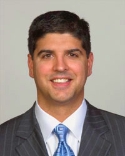President Joe Biden’s State of the Union Address pointed out several new initiatives that may pose greater concerns for healthcare providersacross the country. For example, Biden stated March 1 that he would appoint a special prosecutor to ferret out fraud and abuse with respect to pandemic relief funding and funding for which providers like hospitals and nursing homes received a significant amount.
“We are going to go after the criminals who stole billions of relief money meant for small businesses and millions of Americans,” Biden said. Furthermore, Biden stated he would focus on increasing enforcement in our nation’s nursing homes to avoid resident harm and improve quality of care in nursing homes. This includes increasing the Center for Medicare and Medicaid’s (CMS) survey budget by 25%, and a focus on staffing requirements (even though there are staffing shortages prevalent during COVID-19).
So in the face of this onslaught of increased government oversight, providers should consider protecting themselves from criminal and civil liability through the use of effective Compliance & Ethics Programs derived out of the Patient Protection and Affordable Care Act. For years, hospitals and nursing homes have developed compliance plans which can help reduce their liability in the face of audits and investigations by the federal government. In fact, having a compliance program can lower fines and penalties, even jail time, when it comes to government enforcement.
What many fail to realize is that Biden’s recent initiative is just the tip of the iceberg as to why having an effective Compliance Program is so important today. Already, during the pandemic, we have seen the government signaling for greater enforcement with respect to CARES Act Provider Relief Funds (PRFs). In fact, well before Biden’s address, the U.S. Department of Health and Human Services (HHS), which administers the PRFs, has stated that HHS expects providers to only use PRF payments for stated permissible purposes, and to return unused money to HHS. The department has also stated it would audit providers in the future and collect PRF amounts used inappropriately.
Furthermore, HHS announced in 2020 that it will have significant anti-fraud monitoring of the PRF funds distributed, with the Office of Inspector General (OIG) given oversight under the CARES Act to ensure proper use of the funds. So Biden’s warnings are not surprising, though his administration’s emphasized focus on pandemic fraud should be a wakeup call to all providers.
Mitigating liability for providers
One of the best ways to mitigate liability when it comes to COVID-19 liability and PRF funding is having an effective compliance program. As stated, these programs have been required for years. For some providers, required since 2013. But newer pronouncements in June 2020, during the pandemic, have shown that an “effective” compliance program may be a provider’s best insulation from liability in this era of increased enforcement.
In June 2020, the U.S. Department of Justice Criminal Division put forth a memorandum updating the DOJ’s Evaluation of Corporate Compliance Programs (ECCP) in a proactive effort to educate companies on the impending increase in crimes and penalties. This memorandum explains specific factors prosecutors should consider in conducting an investigation and determining whether to bring charges and negotiating settlements. The factors included the adequacy and effectiveness of the compliance program at the time of the offense and the remedial efforts of companies to implement an adequate and effective corporate compliance program to improve their existing ones.
In essence, the DOJ was signaling that having an effective compliance program could help stave off investigations and reduce liability significantly. This shows that having an “effective” program is key to reducing liability in the face of any future PPP loan or CARES Act PRF reporting and audits.
If that weren’t enough, in yet another major development, in October 2021, Deputy Attorney General Lisa O. Monaco gave a keynote address at the ABA’s 36th National Institute on White Collar Crime. Her comments highlight this column’s points and bolster why healthcare facilities need to have “effective” compliance programs. The first bullet below warrants working with our clients in helping them monitor and develop effective compliance
programs today:
“I’m sure many of you in the audience are going to get calls from clients over the next few days with questions about what this all means. … Companies need to actively review their compliance programs to ensure they adequately monitor for and remediate misconduct — or else it’s going to cost them down the line.”
Now, more than ever, providers need to update their compliance plans and have them evaluated by counsel for effectiveness. Ultimately, this may be the best way, legally, to protect providers against increased enforcement by the government.
Reprinted with permission of Chicago Lawyer.








